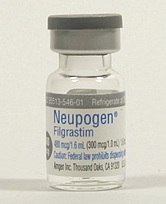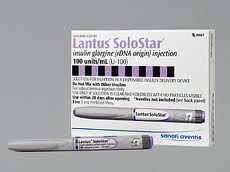
Biosimilars have made a splash in Europe, Australia and India, and now they're gaining steam stateside. That's sure to continue, with Citigroup analysts estimating innovative biologics will lose $110 billion in sales to copycats by 2025. And with one biosim already on the U.S. market, and more poised for a 2016 liftoff, next year will give drugmakers and payers a taste of the biosim contest to come.
Top brands from companies such as Sanofi ($SNY) and Amgen ($AMGN) could start feeling the burn next year as copycat challengers take hold. Payers and PBMs are ready: Express Scripts ($ESRX), for one, has said it's eager to adopt biosims to reap the expected savings.
Amgen is first in line for the sting of biosimilar competition, now that Novartis' ($NVS) Sandoz unit has rolled out Zarxio, a Neupogen (filgrastim) biologic. Challengers are working on other versions of the company's drugs, including Neupogen's sister med Neulasta.
Meanwhile, Eli Lilly ($LLY) and partner Boehringer Ingelheim are gearing up to launch Basaglar, their "follow-on biologic" copy of Sanofi's top-selling insulin Lantus. With a brand-new FDA approval in hand, they're set for a December 2016 launch under a recent patent settlement.
 Amgen could win its first biosimilar approval next year, too; the biotech giant is playing both sides of the fence, developing its own biosimilars to offset endangered sales. It recently went to the FDA with its knockoff version of AbbVie's ($ABBV) top seller Humira, dubbed ABP 501.
Amgen could win its first biosimilar approval next year, too; the biotech giant is playing both sides of the fence, developing its own biosimilars to offset endangered sales. It recently went to the FDA with its knockoff version of AbbVie's ($ABBV) top seller Humira, dubbed ABP 501.
One question for next year is pricing. For years, experts have suggested that biosimilars would sell for a modest discount to the original med, but in Europe, Remicade knockoffs have been undercutting Merck & Co.'s ($MRK) branded version by 40% or more, and gaining big market share in the process. U.S. payers will want to see aggressive discounts, of course; they could save $250 billion over the next decade after patients switch to biosimilar versions of 11 top drugs, Express Scripts CMO Steve Miller told FiercePharma earlier this year. About 40% of Amgen's total sales are at risk to biosimilars over the next 5 years, Morningstar analyst Damien Conover said earlier this year.
Another question: How quickly will doctors flock to biosimilars once they launch? Some research suggests that initially, it won't be fast at all. U.S. doctors don't know much about biosimilars; earlier this year, doctor platform and community QuantiaMD surveyed 300 primary care physicians and specialists to find out just how much they knew about the drugs, and only 78% of those polled said they were familiar with the term "biosimilar." Fewer still--38%--could name one under consideration for FDA approval that would be relevant to their patients.
Plus, doctors may be reluctant to prescribe without flawless data on biosims, Bernstein analyst Ronny Gal said recently, and that could pose a problem for companies such as Pfizer's ($PFE) Hospira and partner Celltrion as they try to bring their biosimilar of Johnson & Johnson's ($JNJ) Remicade, Remsima, to the U.S. Docs have "not been nearly as impressed by Remsima data" as they were for stats on Novartis' Zarxio, Gal said.
Special Reports: The top 15 pharma companies by 2014 revenue - Novartis- Amgen - AbbVie | Top 10 generics makers by 2012 revenue - Novartis (Sandoz) | The 10 best-selling drugs of 2013 - Enbrel - Humira